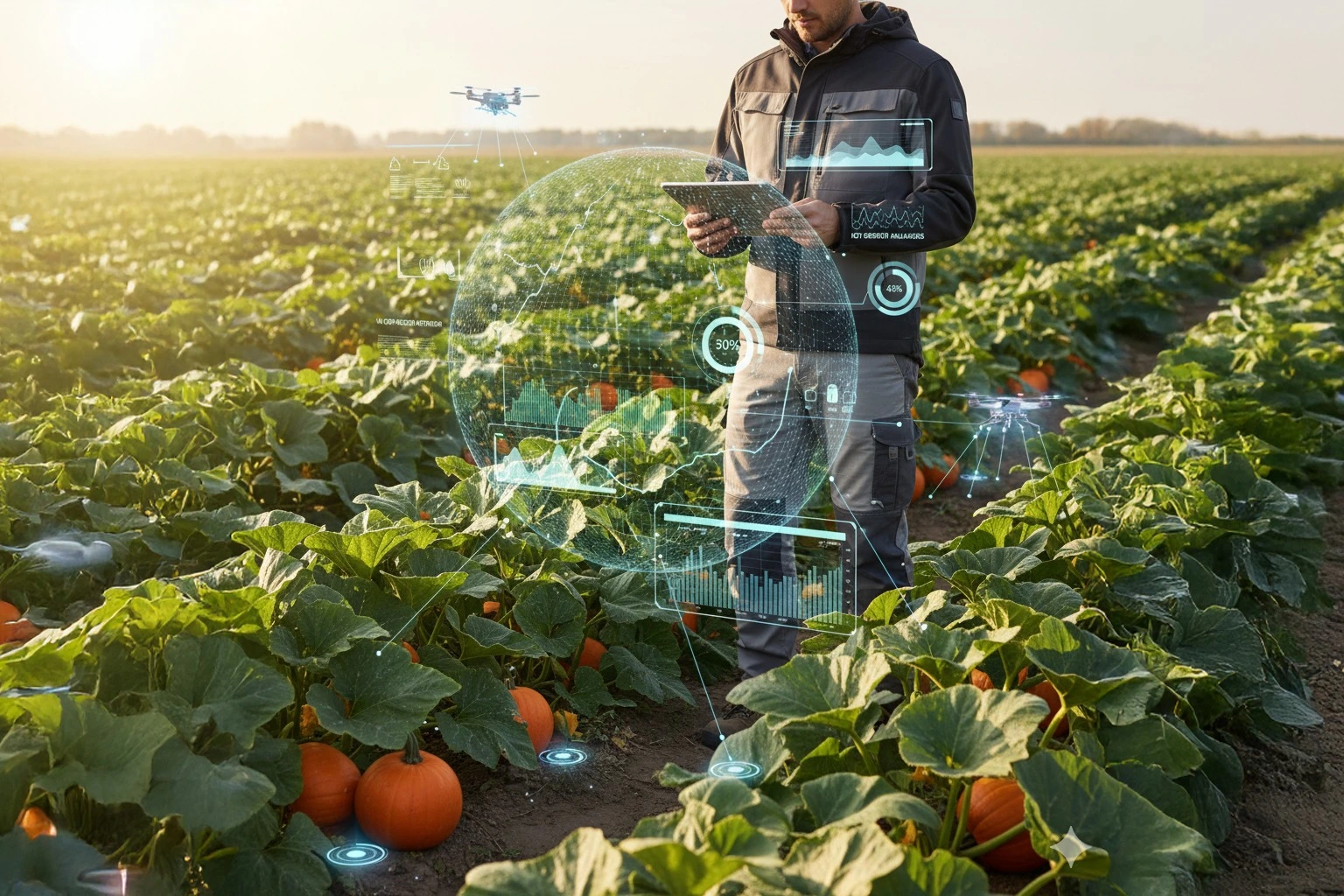Introduction
As cities grow, ensuring a steady supply of fresh, nutritious food becomes more challenging. Urban food security is a pressing concern, with rising populations, limited land, and stretched supply chains creating gaps in access. This is where an Agritech company steps in, transforming the way food is grown, distributed, and consumed in urban environments. From smart farming in urban areas to innovative Agritech solutions for urban farmers, technology is redefining urban agriculture and helping build resilient and efficient urban food systems.
Agritech’s Role in Feeding Growing Cities
Urban food security refers to the ability of city populations to access sufficient, safe, and nutritious food. Unlike rural areas, cities face unique hurdles such as limited agricultural space, high population density, and reliance on complex supply chains. Climate change and environmental stressors further complicate this challenge. Therefore, creating resilient and efficient systems is essential.
How Agritech is Revolutionizing Urban Agriculture
Modern Agritech solutions for urban farmers are not just about growing food; they are about transforming entire urban ecosystems. These solutions include:
- Vertical farming: Using stacked layers to maximize limited space.
- AI-driven crop management: Predicting growth patterns, pest threats, and harvest times.
By implementing these techniques, urban farmers can achieve higher yields, reduce waste, and ensure a consistent food supply, directly contributing to urban food security.
Smart Farming in Urban Areas
Smart farming in urban areas leverages technology to make agriculture more precise and efficient. IoT devices, drones, sensors, and data analytics allow urban farmers to monitor soil health, track crop growth, and manage resources in real-time. For instance, automated irrigation systems reduce water wastage, while AI-driven insights help prevent diseases before they affect yield. These tools empower urban farmers to produce more with less, creating resilient and adaptive urban food ecosystems.
Building Efficient Urban Food Systems
Creating efficient urban food systems is crucial for long-term urban food security. These systems focus on reducing carbon footprints, recycling nutrients, and integrating renewable energy. Eco-friendly farming methods, such as rooftop gardens, community farms, and controlled environment agriculture, help urban populations access fresh produce, benefit economically, and preserve the environment.
Real-world Examples of Agritech Success in Cities
Several cities around the world are showcasing the power of Agritech solutions for urban farmers. For instance:
- Singapore has embraced vertical farming to grow leafy greens locally.
- Urban startups in New York and Tokyo are using hydroponics and AI to ensure year-round production.
- European cities are integrating smart greenhouses to optimize water and energy usage.
These initiatives demonstrate how Agritech solutions for urban farmers can dramatically improve urban food availability while reducing dependency on distant supply chains.
Challenges and Considerations
Despite the promise, there are challenges to implementing in urban settings:
- High initial setup costs and technological expertise required.
- Regulatory hurdles and zoning restrictions.
- Acceptance by communities and adaptation to new farming practices.
However, with proper policy support, training, and investment, these barriers can be overcome, paving the way for widespread adoption of smart farming in urban areas.
Conclusion
The future of urban food security lies in technology-driven solutions. From smart farming in urban areas to building efficient and resilient urban food systems, an Agritech company plays a key role in driving productivity and sustainability. Agritech solutions for urban farmers are transforming urban agriculture, ensuring healthier, more secure food systems for tomorrow.
FAQs
-
What is the role of Agritech company in urban food security?
It improves urban food security by optimizing food production, reducing waste, and enabling efficient, tech-driven farming practices.
-
How does smart farming in urban areas work?
It uses IoT devices, AI analytics, and automated systems to monitor crops, conserve resources, and maximize yield in limited spaces.
-
Which Agritech solutions are best for urban farmers?
Vertical farming, hydroponics, aquaponics, and AI-driven crop management are highly effective for urban agriculture.
-
Can Agritech company make urban food systems sustainable?
Yes. By integrating renewable energy, efficient water use, and eco-friendly farming practices, it contributes to resilient and efficient urban food systems.
-
What are the challenges of implementing smart farming in urban areas?
Challenges include high costs, technical expertise requirements, regulatory barriers, and community acceptance.
Disclaimer
The content published on this blog is provided solely for informational and educational purposes and is not intended as professional or legal advice. While we strive to ensure the accuracy and reliability of the information presented, StarAgri make no representations or warranties of any kind, express or implied, about the completeness, accuracy, suitability, or availability with respect to the blog content or the information, products, services, or related graphics contained in the blog for any purpose. Any reliance you place on such information is therefore strictly at your own risk. Readers are encouraged to consult qualified agricultural experts, agronomists, or relevant professionals before making any decisions based on the information provided herein. StarAgri, its authors, contributors, and affiliates shall not be held liable for any loss or damage, including without limitation, indirect or consequential loss or damage, or any loss or damage whatsoever arising from reliance on information contained in this blog. Through this blog, you may be able to link to other websites that are not under the control of StarAgri. We have no control over the nature, content, and availability of those sites and inclusion of any links does not necessarily imply a recommendation or endorsement of the views expressed within them. We reserve the right to modify, update, or remove blog content at any time without prior notice.



